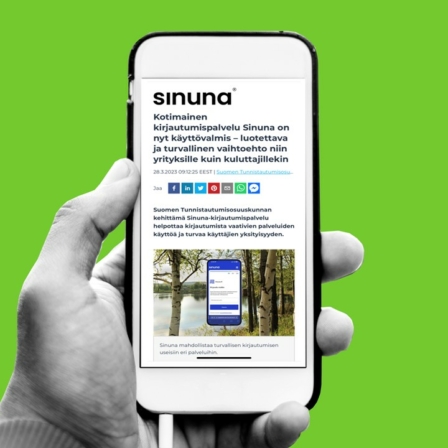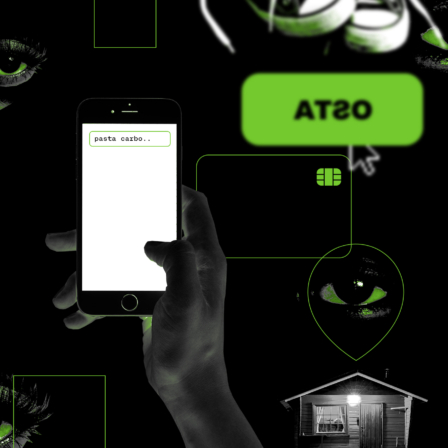Data controllers are highly secretive and prioritise increasing the numbers of users and interactions over public interest and the effects on people. It’s difficult to know exactly what they are doing with people’s data but also hard to get them to respect privacy and people’s rights.
Companies controlling and collecting data have more power than the regulations that are meant to keep them in check . And they are getting bigger and bigger, according to Directorate-General for Communications Christian D’Cunha, CEO Stéphane Duguin and MEP Leïla Chaibi, the test subjects of the Digipower investigation.
Christian D’Cunha: ”They are much more powerful than the regulations that are responsible for disciplining and controlling them.”
I use social media mainly for professional or semi-professional ends and for keeping in touch with people via messaging apps like Signal, WhatsApp, and Telegram. I have worked in data protection for years, so I don’t really “trust” any of these big platforms. The use of data is not generally transparent, so we don’t know what happens with your data. These big companies have multiple ways of tracking you and gathering information on you through their own platforms and agreements with third parties. That makes it impossible to know what is happening. I think the survey is a very important one to help us evaluate what is really going on. There is a difference between data they tell you they have and data they have.
Mega companies have the infrastructure and algorithms for collecting and getting value from data on everything people do and get much more than most other companies . There is huge inequality of access or access to make data valuable. These platforms have profit-based algorithms determining what people see, unlike traditional, regulated means of political communication. Certain things can be put on television, and certain things not. The internet doesn’t have such rules. Politicians are reluctant to do anything about this situation, because the internet is often the only way to communicate with potential voters.
My personal view on legislation is that it is difficult to do much with an individual law when these are the most powerful companies in the world. They are very secretive. They get bigger and bigger as they buy up other companies. All of this means that they are much more powerful than the regulations that are competent to discipline and control them.
It is illegal to stalk people and to harass them offline but that happens online all the time – it is the basic business model. If you imagine walking into a shop and the owner is watching you to see what you are doing, that’s probably legitimate. I mean it depends on how intrusive it is, but it wouldn’t be appropriate for that shopkeeper to spend rest of your life watching what you are doing. People can be watched and be put in categories and profiles. The GDPR may not be enough. In my opinion it is not enough to stop that. It is not an option to just to get people to give their consent, because consent is easy to manipulate. So, if you are an individual consumer, you don’t really understand the technology, and there is a big company – the biggest company in the world – and if they want you to agree to something they have lots of techniques to get you to agree.
Stéphane Duguin: “Data collection should not be regulated by habit, behaviour or the market. It should be regulated by law and with having the public interest and human impact in mind.”
I use social media mostly, if not only, professionally. I don’t use social media in my leisure time. The main channels for me are Twitter and LinkedIn. I am very very curious about the outcome of the survey. It will be interesting to know more about data and compare it to the rest of the group – it’s a lesson to learn.
Data is used in multiple areas, and it is linked to decision making and people’s personal lives. It impacts policy making, information – that’s why it is important to have this investigation and demand that policy makers to create a frame for data collection. It is important to make sure data is collected lawfully and accurately.
Data collection shouldn’t be regulated by habit, behaviour, or the market. It should be regulated by law and keeping the public interest and human impact in mind. There is potential for capacity building and training for the public. The public is very important in understanding why [we need] to regulate data processing, because it comes down to having your rights enforced in the digital space. I lead the CyberPeace Institute, the idea of which is that cyberspace needs to be a space of security, dignity, and equity for everyone. Part of it is having norms, laws, and regulation to secure these values.
I view three important issues with data collection. Firstly, data accuracy – is the data collected accurately eg. the data used in the research and health fields following key principles of transparency, peer reviews and methodology. Secondly bias – what bias the data has? All collection mechanisms can be biased such as by looking only one type of data such as specific context, group, or community. This impacts the resource that is going to be all biased data entry. Thirdly, data manipulation – all the information operations we see, misinformation.
Leïla Chaibi: ”Platforms excuse violations by the fact that they use algorithms. Even if companies use algorithms, we need to make them respect privacy and common rights.”
I use social media to get information, to stay updated on debates and to follow activist groups. Like many people, I leave a lot of data on websites as I sometimes accept the cookies. Indeed it’s really complex to manage them or then you need to pay to access to information. After this, I get targeted advertisements and every time the amount of data collected surprises me.
The main issue for me is the impact on a larger scale. The fact that collecting data can give an enormous amount of power for certain big organisations is what I am concerned of. During the last presidential election in the US, they knew how to influence citizens, because of the data they had collected. I view collecting data and influencing with it as a new kind of power.
I am not passionate about data, but about the regulation of it. Big companies think they can do whatever they want with the law. Algorithm management interests me. The issue is that platforms excuse certain violations by the fact that they use algorithms. Companies use technological evolution as an excuse to avoid regulations and the law. Even if companies use algorithms, we need to make them respect people’s privacy and common rights.
This is a major risk for democracy, for people are influenced in ways they do not understand. When there is a debate on television, you know the other person wants to increase wages and the other to decrease it. This is not the case online. With targeted content, you do not know these things. People are influenced more by psychology and the little personal information that is gathered on individuals. On the possibilities of data, I would say that it could be possible to use data in favour of democracy.
Social and digital media influence our thinking on a daily basis, sometimes distorting the truth. Sitra’s Digipower investigation tracks the journey of 15 leading influencers and their own data and shows what happens to their data and how data becomes power. The results of the project will be published in early 2022.











Read more